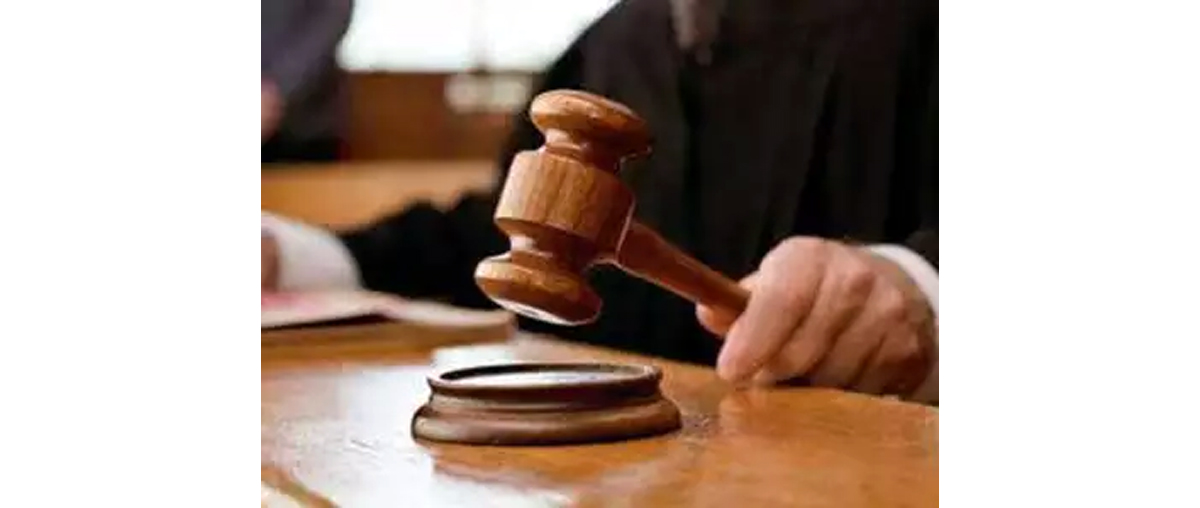HC notifies Rules to imbue greater transparency, inclusivity
Mohinder Verma
JAMMU, Feb 27: To imbue greater transparency, inclusivity and foster access to justice, High Court of Jammu & Kashmir and Ladakh has notified Live Streaming and Recording of Court Proceedings Rules, which will apply to all the courts and tribunals across both the Union Territories.
These Rules have been framed in exercise of the powers under Article 225 and Article 227 of the Constitution of India and have come into force with immediate effect. The Information Technology Committee of the High Court has already conducted detailed exercise for live streaming and recording of court proceedings.
A dedicated control room will be set up for every court complex, which will monitor and track proceedings as they are live streamed, recorded and transcribed and it will be duty of the control room to ensure that nothing uncivil or inappropriate is streamed in the public domain.
A remote control devise will be provided to the Presiding Judge on the Bench to pause or stop the live streaming at any time and advocates, witnesses, accused or any other person permitted by the Bench, will use appropriate microphones while addressing the court.
As far as remote location is concerned, appropriate hardware will be deployed to the extent practicable and where proceedings are conducted through web-links including video conferencing services, appropriate software and hardware will be employed to generate an integrated feed for live streaming.
Matrimonial matters, child adoption and child custody including transfer petitions arising there under; cases concerning sexual offences including proceedings instituted under Section 376, Indian Penal Code, 1860; cases concerning gender-based violence against women; matters registered under or involving the Protection of Children from Sexual Offences Act, 2012 (POCSO) and under the Juvenile Justice (Care and Protection of Children) Act, 2015; matters registered under or involving the Medical Termination of Pregnancy Act, 1971 and in-camera proceedings as defined under Section 327 of the Code of Criminal Procedure, 1973 (CrPC) or Section 153 B of the Code of Civil Procedure, 1908 (CPC) will be excluded from live streaming.
Even cases, which in the opinion of the Bench, may provoke enmity amongst communities likely to result in a breach of law and order; privileged communications between the parties and their advocates and any other matter in which a specific direction is issued by the bench or the Chief Justice will also be excluded from live streaming.
The Court Master/Reader shall duly inform the parties, before the commencement of the proceedings that the proceedings are being live streamed and that objections, if any, should be articulated at that-juncture to the concerned Bench. However, final decision in this regard will be of the Bench only. But the decision of the Bench will be guided by the principle of an open and transparent judicial process.
“In cases where the proceedings are not live streamed, the recording shall be maintained for usage by the court and the appellate court(s)”, the Rules said. However, access to the recording of the testimony of witnesses will not be given until such time that the evidence is recorded in its entirety and transcript of the recordings would be made available to the advocate or litigant-in-person. In case of litigant-in-person, who is also a witness in the matter, the Bench in its discretion will decide as to the stage at which the litigant-in-person should have access to the recordings of the testimonies concerning the other witnesses in the matter.
In criminal matters, the testimony of victims and witnesses will be recorded for the exclusive use of the concerned Bench and the appellate court(s), as per the direction issued in that behalf. The anonymity of the victims and witnesses shall be maintained in the recordings via dummy names, face-masking, pixelation and/or electronic distortion of voice, as and when directed by the court.
The discussions between/ amongst the Judges on the bench; instructions given by a Judge to the administrative staff during the proceedings; any communication/message/document given by the Court Master/Reader to the bench; documents given to the Judge during the proceedings and communication between the advocate and client, inter-se the advocates and communications which is not a submission exchanged between the advocate and the court will ordinarily not be live streamed or saved in the archival data.
Personal information such as date of birth of parties, home address, identity card number, bank account information and the personal information of related parties, such as close relatives, witnesses and other participants, will be deleted or muted during live streaming. However, such proceedings will be preserved in the archival data.
About the prohibitions and restrictions on usage of the recording or live stream, the Rules said, “no person/entity (including print and electronic media and social media platforms) other than an authorised person/entity share and/or disseminate live streamed proceedings or archival data. This provision will also apply to all messaging applications.
“Any person/entity acting contrary to this provision will be prosecuted as per law. The court shall have the exclusive copyright in the recordings and archival data. Any unauthorised usage of the live stream will be punishable as an offence under the Indian Copyright Act, 1957, Information Technology Act, 2000 and other provisions of law, including the law of contempt”, the Rules said.


